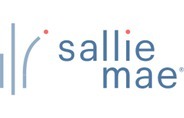- Loan types
- Undergraduate, graduate, professional, career training
- Fixed rates
- 4.50% to 14.83%
- Variable rates
- 5.99% to 16.33%
Sallie Mae lends up to 100% of school costs to undergraduate, graduate, professional and career training students. Full-time enrollment is not required for funding, and you can receive lending for community college tuition too.
While student loan amounts cannot exceed the cost of attendance, miscellaneous expenses such as a laptop, equipment and traveling might be considered part of the cost of attendance. All loans come with no origination fees or prepayment penalties, and you can receive a 0.25% interest rate discount with autopay.
Having a co-signer is not required but strongly encouraged. Salle Mae says that 87% of its approved undergraduate borrowers have co-signers and that students have historically been three times more likely to be approved with a co-signer.
Sallie Mae does not offer a way for students and co-signers to check if they are pre-qualified or what rate they will get without a hard credit check. You don’t have to accept the loan terms if you do apply, but your score will still be affected. While Sallie Mae says that either the borrower or the co-signer needs to be creditworthy, it does not have credit or income requirements posted on its site.
If you find yourself struggling to pay for your student loans after graduation, Sallie Mae offers some assistance. After the six-month grace period, qualifying borrowers will have the option for interest-only payments for 12 months. This does not increase the loan term, but it will increase the total loan cost.
- Higher approval rate with co-signer
- No origination fees
- Can be used for community college and career training programs
- Unclear credit and income requirements
- Hard credit check
- No pre-qualification check
Many felt that Sallie Mae provided the funding they needed to get their degrees and career certificates. Others praised the company for having customer service that was easy to connect with. One borrower from New Jersey said, “Their offers were great for my needs at the time and repayment was easy. I would definitely recommend them to any student who is in need and can’t find the funds.”
Others didn’t share the same sentiment about Sallie Mae, feeling that they were out of luck once they graduated. They said that Sallie Mae did not offer much time or assistance when their financial situations were tight or offer flexible repayment options.
















